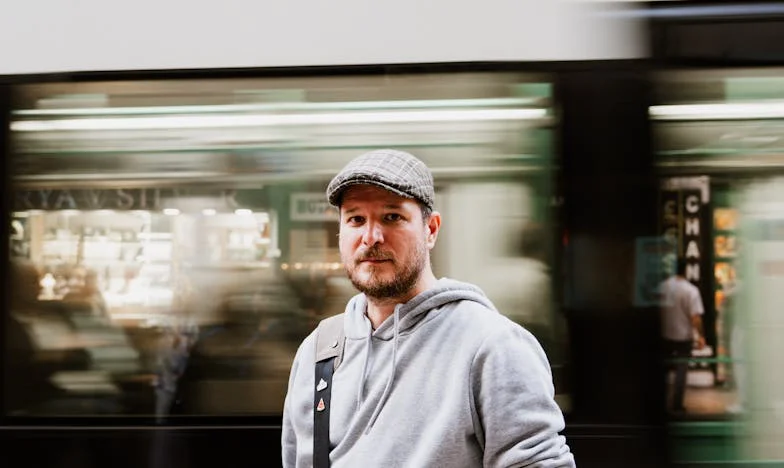Torn Between My Mother and My Husband: A Daughter’s Dilemma in Modern America
“Why does it always have to be you, Emily?” Michael’s voice echoed through the kitchen, sharp as the clatter of the mug I’d just dropped. Coffee spread in a dark pool across the counter, seeping into everything—just like this argument that never seemed to end.
I gripped the edge of the sink, breathing hard. My hands were shaking. “Because she’s my mother, Mike. Because she has no one else.”
He ran a hand through his hair, frustration etched deep into his face. “We have our own family. Lily needs you. I need you.”
I opened my mouth but nothing came out. Lily’s laughter floated in from the living room where she played with her blocks, oblivious to the storm brewing a room away. For a second, I wished I could be four again, safe in the belief that grownups always knew what to do.
Two months ago, Mom fell. Just a simple trip in her tiny apartment, a twisted ankle, a bruised hip. But the ER doctor’s words—early onset dementia—changed everything. Suddenly, the mother who’d once held my hand crossing the street now needed me to remind her to lock her door, to pay her bills, to eat. My older brother lives in Oregon, too busy with a new wife and stepkids to offer more than token sympathy over the phone. Dad died when I was fifteen. It’s just me.
I thought I could manage. I work remotely—marketing for a software startup—so I juggled Zoom calls and preschool pick-ups with doctor appointments and pharmacy runs. I tried to shield Michael from the chaos, but it seeped into our lives: missed dinners, forgotten anniversaries, exhaustion so deep I could barely speak. And always, Michael’s eyes, wary and hurt.
It was Saturday now, the only day I could truly catch my breath, and here we were—fighting again, because Mom had called at 6 a.m., panicked that she’d lost her keys. Again.
“I’m not saying you shouldn’t help her,” Michael said, voice dropping to a wounded whisper. “But I feel like I’ve lost my wife. Lily barely sees you. You snap at me. You’re…gone, Em.”
Tears pricked my eyes. “I’m trying. I’m doing my best.”
He turned away, shoulders tense. “Your best isn’t enough for any of us.”
I wanted to scream that it wasn’t fair, that I didn’t ask for any of this, but instead, I wiped the coffee from the counter and packed Lily’s snack for soccer practice, moving on autopilot. That night, after Lily was asleep, I sat outside on the back porch, staring at the stars. My phone buzzed—a text from Mom: “Love you, Emmy. Did I take my meds?”
I texted back, “Yes, Mom. Goodnight.”
The next week was a blur. Michael worked late; I ferried Lily to daycare, then to Mom’s, where I set up pillboxes and stuck Post-it notes everywhere: “Turn off stove! Feed cat!” Mom wept, ashamed of her forgetfulness, clutching me like a lifeline. I tried to be patient, to remind myself that she wasn’t doing this on purpose, but my nerves were shot. At home, Michael barely spoke to me unless it was about bills or groceries. The silence between us grew until it felt like a wall.
One night, after a particularly rough day—Mom had wandered out and gotten lost, and I’d left work early to find her—Michael met me at the door.
“We can’t keep going like this,” he said, voice trembling. “I need you to choose, Em. Us, or this. If you move her in, I’m moving out.”
His words hit me like a slap. Suddenly, everything was real and raw. I stared at him, heart pounding. “Are you giving me an ultimatum?”
He nodded, eyes red. “I love you, but I can’t raise Lily alone while you become someone else’s mother.”
I wanted to rage, to accuse him of being selfish, but deep down, I knew he was scared—scared of losing me, scared of a future none of us planned for. I sat on the stairs, head in my hands, sobbing until my chest ached.
That night, I called my brother. “You have to help. Mom needs more than I can give. My marriage—my daughter—”
He sighed. “I can’t just fly out, Em. We can talk about assisted living?”
The guilt was suffocating. How could I put my mother in a home? She begged me once, tears streaming down her cheeks, “Don’t leave me alone, Emmy. Please.”
But what about Lily? What about Michael, who’d once been my rock? What about me?
A week later, I took Mom to tour a memory care facility. She clung to me, frightened and confused, asking if she’d done something wrong. Afterwards, I sat in my car and screamed, wishing I could run away from all of it. When I got home, Michael hugged me, silent but supportive, and for the first time in months, I let myself lean on him.
We made a plan: Mom would move into assisted living. I’d visit every day, but I’d come home for dinner, for bedtime stories, for the life I’d built with Michael and Lily. The guilt never left, but Michael’s arms around me, Lily’s giggle as I tucked her in—they reminded me why I had to make the choice I did.
Now, months later, I still lie awake at night, wondering if I did the right thing. Sometimes, I hear Lily call for me and I rush to her, heart in my throat, terrified of failing again. Sometimes, I visit Mom and she doesn’t know who I am. But sometimes she smiles and says, “Thank you, Emmy. I love you.”
Is it possible to be a good daughter and a good wife and mother at the same time, or does loving one person always mean letting another down? How do you choose, when every path breaks your heart?
